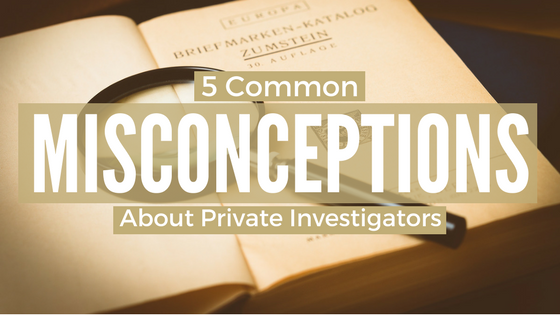White House proposal may create independent corporate investigation opportunity
When gaps appear in corporate accountability, can private investigators step up to conduct an independent corporate investigation? The White House reported last week that it will be taking steps towards minimizing investigations into corporate misconduct and reducing a government agency’s ability to open more than one probe into a single company concurrently. While independent agencies such […]
5 Misconceptions and Limitations of Private Investigators

Mainstream media has done a fantastic job of skewing the public’s view of private investigators to be something that it’s not. Specifically, TV-shows and movies portray private investigators as people who are not bound by the same laws as everyone else. Here are some of the popular misconceptions about private investigators: Misconceptions about Private Investigators […]
Conduct Due Diligence for Corporate Merging
Why You Should Conduct Due Diligence for Corporate Merging or Acquisition of Another Company? Indianapolis Private Investigator, Lauth Investigations can assist companies with the merger and acquisition due diligence process. Just like you would do a background check on a potential employee, it is also important to do a comprehensive due diligence check on another […]
Computer and Cellular Forensics.
Computer forensics remains a growing field in private investigations. Sometimes referred to as computer forensic science, private investigators specialized in computer forensics, may be hired by private individuals and major corporations to securely collect data, examining and preserving the contents of the computer, cellular or storage device, and assist with investigations from pornography detection to […]
Private Investigators – The Sherlock Holmes of today.
Due to blockbuster movies, books and television shows people may have a notion that private investigators sit in their smoke filled offices smoking a pipe while hired by some jilted homemaker to follow around her cheating husband. While investigators do follow cheating spouses, the world of private investigation has expanded beyond our wildest dreams with […]
Guidelines to Ensure You Are Working With a Licensed and Competent Private Investigator.
Any time you hire an individual or company to provide a service whether it may be a simple home repair or as important as hiring someone to watch your children it is always a good idea to check the background of the business or individual you may be contemplating on hiring. This is also recommended […]
When to Use a Private Investigator in Custody Matters?
When considering the welfare of the children, courts must be informed in order to rule on decisions to determine custody and parenting time. The court’s decision must be based upon credible information submitted to the court; to include interviews and potential testimony of litigants and witnesses. Typically when thinking of custody we may immediately think […]
Corporate Due Diligence and Asset Searches in Litigation
How Corporate Due Diligence Investigations, Asset Searches, and Litigation Support Can Protect Your Company Our Indianapolis Private Investigators at Lauth Investigations International work with national and global corporations and their corporate attorneys to provide a variety of investigative services. Our Indiana corporate investigators specialize in performing comprehensive due diligence investigations, corporate background screening, validation of […]
Global Corporate Growth Warrant Increased Use of PI Firms
How Corporate Private Investigators Root Out Illegal Activity in the Workplace and Illegal Workers? At Lauth Investigations International headquartered in Indiana, our Indianapolis private investigators work with national and global corporations and specialize in internal crisis management investigations and business intelligence. In the corporate world, there is a lot of room for treachery, especially as […]
Indianapolis Private Investigators Focused on the Safety of Children
How can a private investigator help keep my child safe during divorce or child custody dispute? All too common in today’s headlines are stories involving children who have been abused. While we worry about our children’s safety around strangers, we sometimes fail to take the proper precautions to keep children safe in their own environments. […]